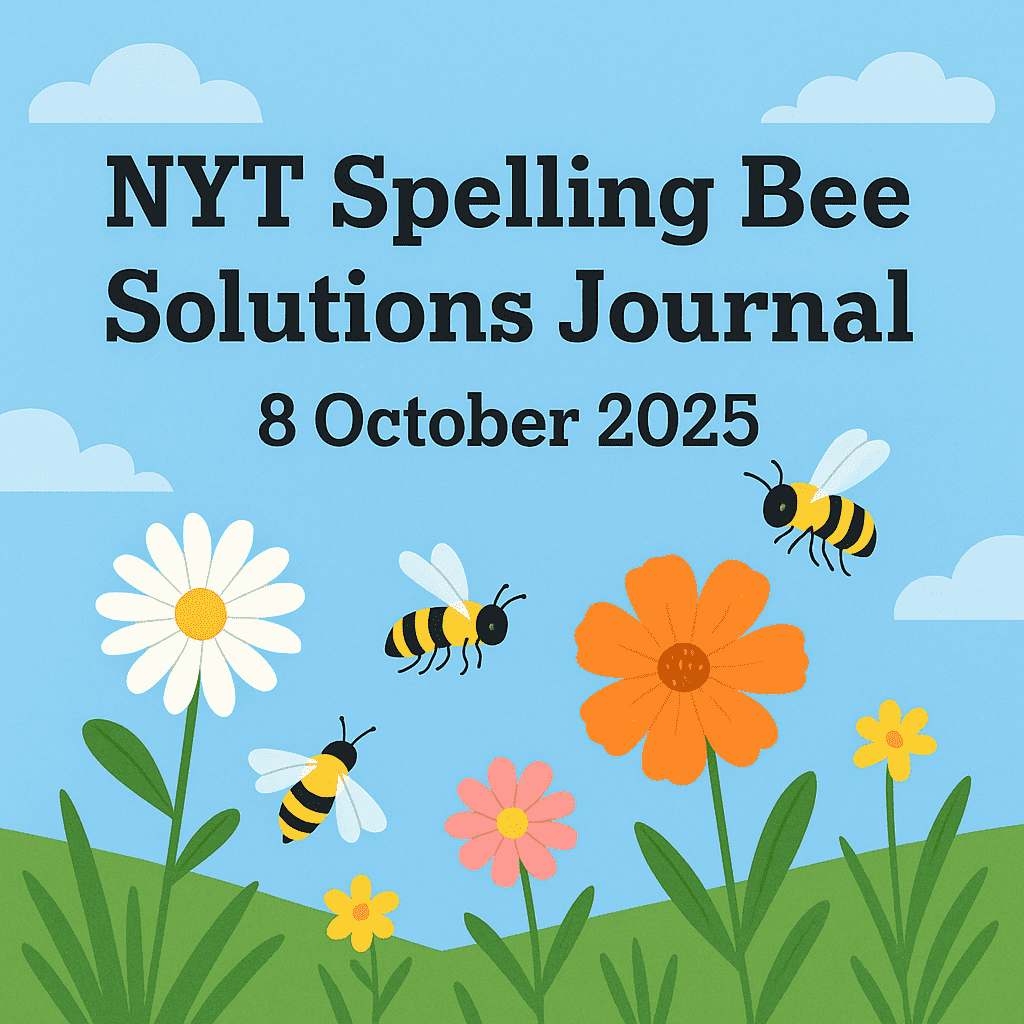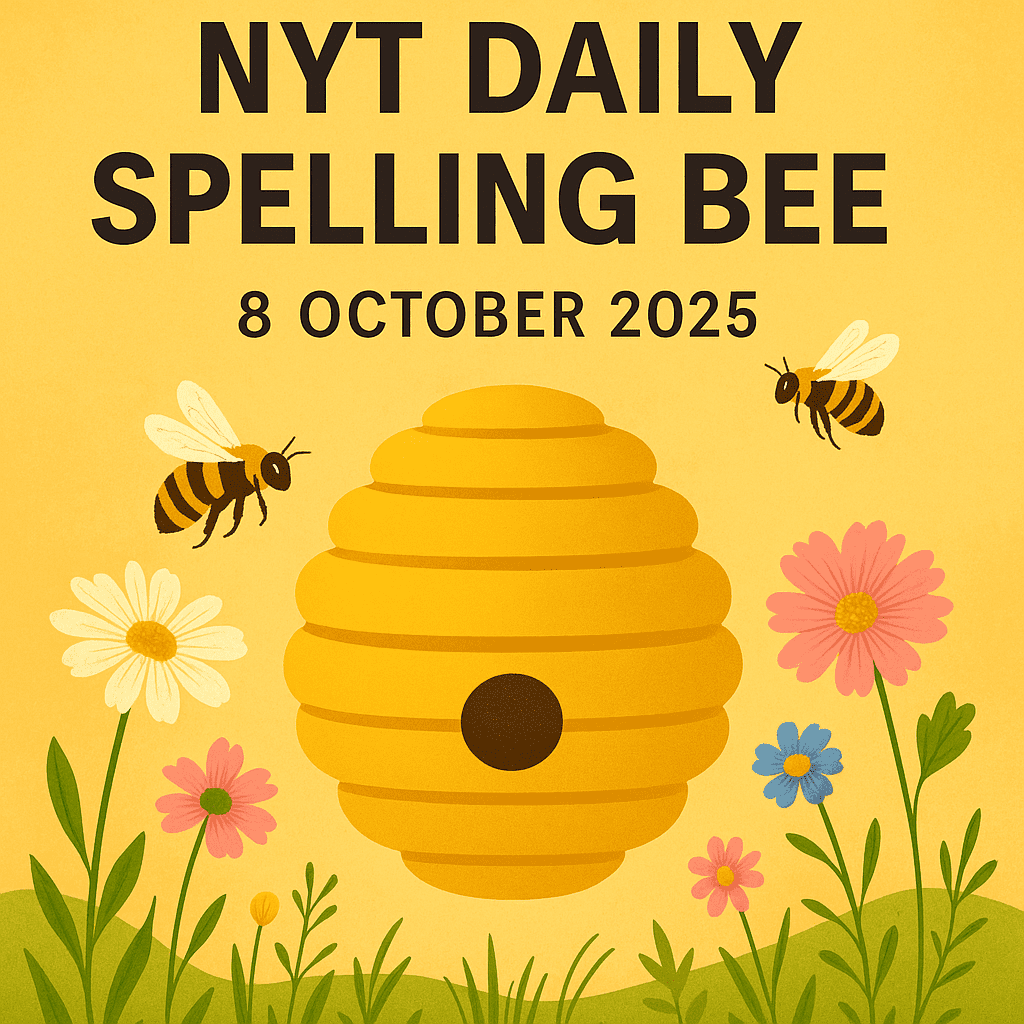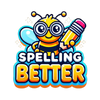Pangram: UNWAXED
Today’s NYT Spelling Bee puzzle was sleek, smooth, and surprisingly satisfying — much like its pangram, UNWAXED. With N in the center and a mix of sharp and soft surrounding letters (E, W, D, X, U, A), this hive was all about balance and clarity. At first glance, it seemed simple, but it turned out to be delightfully tricky, requiring careful observation and a bit of creative wordplay to find the perfect pangram.
How I Solved It
I always start by identifying the vowels and consonants in the hive. Today, we had two vowels (A and E) and a combination of strong consonants — N, W, D, X, U. That’s a compact but promising set, especially with letters like W and X, which often lead to bold and less common words.
My first step was to warm up with short, basic words: and, end, new, den, wan, dew, wane, dawn. These early discoveries help establish a rhythm and build familiarity with the available letter combinations.
After a few minutes of exploration, I noticed that “WAX” stood out as a potential root — a rare but meaningful sequence in such a hive. Then I thought about possible extensions: waxed, unwaxed, waxing. And that’s when it hit me — UNWAXED perfectly fit the bill!
It used all seven letters, included the mandatory N, and had that satisfying completeness that only a pangram gives.
Step-by-Step Solving Strategy
Here’s the process that led me from simple beginnings to the ultimate solution:
-
Spot the vowels first. With only two vowels, combinations are limited but easier to manage.
-
List small connecting words. Words like and, end, new, wan create mental patterns.
-
Focus on unique letters. The inclusion of X often indicates a standout pangram (as seen in words like relaxing, taxmen, waxend).
-
Look for prefixes and suffixes. “UN-” and “-ED” became instant clues.
-
Test possibilities out loud. Saying unwaxed made immediate sense — it’s common enough but unusual enough to feel like a pangram.
When the word clicked, it felt as if the puzzle had unlocked itself.

UNWAXED
Meaning: not covered or polished with wax. It can describe fruits, furniture, or even surfboards — anything left in its natural, unpolished form.
Interestingly, “unwaxed” also works metaphorically — untouched, raw, and natural — which feels like a poetic fit for today’s puzzle.
All Possible Words (4+ Letters)
4-Letter Words:
- dawn
- wane
- wand
- dean
- nude
- anew
- dune
- wend
- nada
- naan
- nana
- need
- wean
5-Letter Words:
- awned
- dawns
- waned
- endan
- undue
- waned
- adawn
- annex
- endue
- ended
- unwed
- wanna
- waxen
6-Letter Words:
- unused
- unwind
- unhand
- addend
- dawned
- deaden
- unawed
- denude
- dunned
- ennead
- needed
- undead
- weaned
- wended
7+ Letter Words:
- unwaxed (Pangram)
- addenda
- annexed
- deadened
- denuded
- unneeded
- unweaned
- unwedded
- unweeded
This puzzle wasn’t overly crowded with lengthy words, but the variety was refreshing — a mix of simple and expressive vocabulary.

Word Insight
The word unwaxed dates back to the mid-19th century, from the prefix un- (meaning “not”) combined with waxed (covered or treated with wax). It’s often used in everyday contexts like describing unwaxed lemons, unwaxed floors, or unwaxed dental floss.
In a way, the word perfectly describes the puzzle itself — simple, natural, and free from unnecessary polish. Every discovery felt organic, leading gracefully toward the pangram.
Did You Spot the Pangram?
Today’s NYT Spelling Bee was one of those beautifully minimalist challenges that reward patience and observation. The hive offered just enough complexity to make the solving process fun but not overwhelming.
Finding UNWAXED felt symbolic — a word that reminds us that sometimes, the most authentic things are those left untouched. The puzzle had a clean, balanced structure with letters that naturally guided toward the pangram once you noticed the “WAX” connection.
If you found it quickly, congratulations — you’re definitely “buzzing” at Genius level today! And if it took some time, that’s part of the fun — every small word you found was another step toward the glow of realization.
Keep playing, keep exploring, and remember — every pangram starts as just a few letters waiting to shine.






